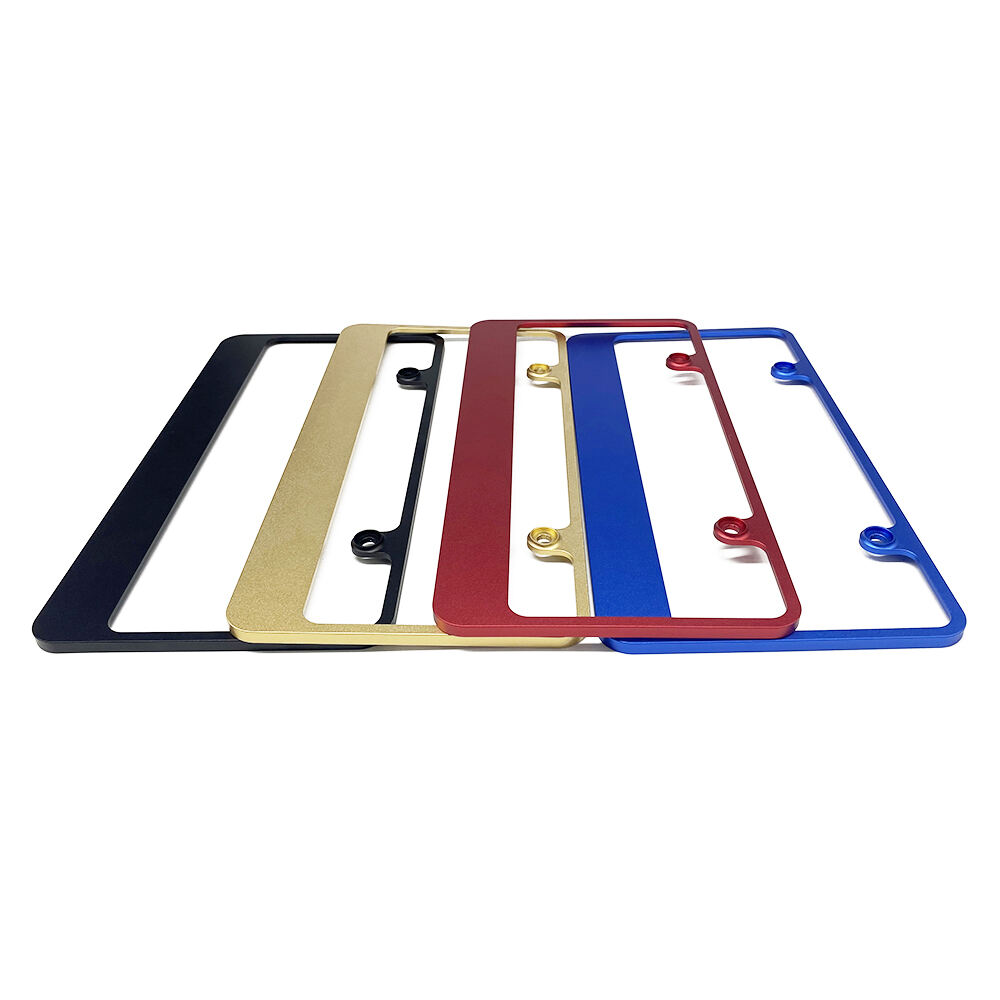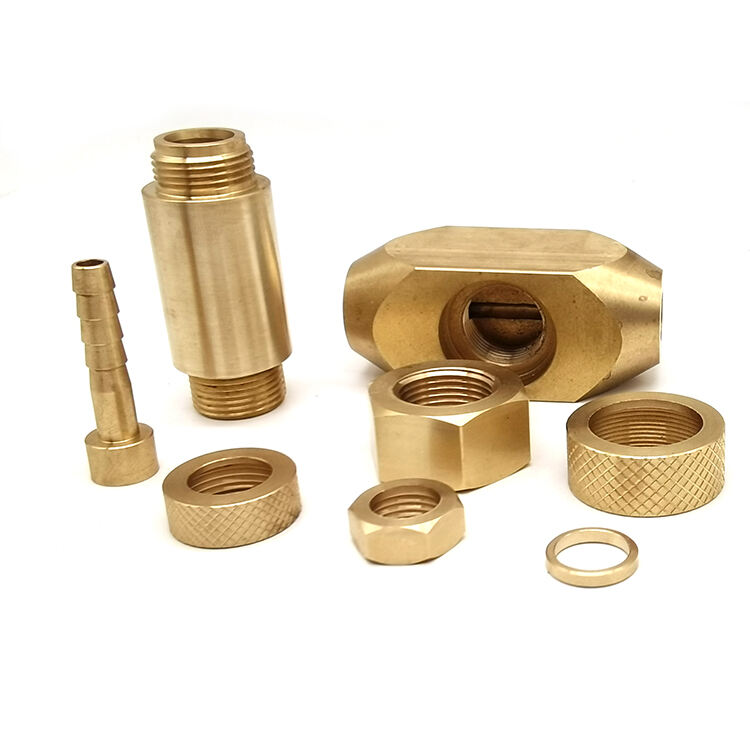Mar 12,2025
0
CNC machining is renowned for its precision, making it ideal for creating intricate designs and maintaining tight tolerances, especially in the automotive and aerospace industries. Brass and copper are particularly well-suited for CNC machining due to their excellent properties. These materials allow for faster machining speeds and reduce tool wear, enhancing production efficiency. Modern CNC machines, equipped with advanced software, enable real-time adjustments, ensuring precision in both prototyping and mass production phases. Reports from the industry highlight that companies employing CNC machining have observed efficiency boosts of up to 30% compared to traditional methods. This underscores the superiority of CNC machining services when it comes to handling complex and delicate parts.
Brass and copper naturally resist corrosion, making them excellent choices for components exposed to harsh environments, including marine applications. When these metals are CNC machined and properly treated, they exhibit enhanced durability, outlasting parts made from less resilient materials. Statistics reveal that machined brass components last more than five times longer in corrosive environments than parts crafted from other metals. Additionally, CNC machining achieves smooth finishes that significantly bolster resistance to wear and tear, prolonging the life of the parts. This durability aspect solidifies the appeal of using CNC machining services to maintain the reliability of critical components over time.
CNC machining is known for its cost-effectiveness, primarily due to automated processes that significantly cut down on labor costs and production times. This method allows for the creation of complex geometries without necessitating frequent tooling changes, thereby minimizing material waste and optimizing resource use. Studies indicate that adopting CNC machining can lead to up to 20% reductions in manufacturing costs, especially for short-run productions. In high-volume manufacturing, where maintaining tight tolerances is imperative for component functionality, the cost-saving benefits of CNC machining become even more pronounced. The ability to consistently produce precision components demonstrates why CNC machining is a preferred choice for manufacturers focused on reducing costs while maintaining quality.
Brass alloys, specifically C360 and C260, play a significant role in CNC machining. C360 is the most widely used due to its remarkable machinability, allowing it to be easily formed into various shapes with efficient production outcomes. It boasts up to 90% efficiency in machining processes, thus making it a preferred choice among manufacturers targeting high productivity. On the other hand, C260 is celebrated for its impressive corrosion resistance, making it ideal for applications where aesthetics and durability are prioritized, such as in decorative components.
Both these alloys offer distinct advantages tailored to specific applications. C360's efficiency and machinability make it suitable for intricate parts like gears and medical equipment components, whereas C260 with its durability is often employed in power sockets and radiator cores. Understanding these properties can significantly enhance material selection in projects requiring precision, such as automotive and aerospace components.
Choosing the appropriate copper grade is crucial for achieving optimal performance in industrial applications. Electrolytic Tough Pitch (ETP) copper, known for its high conductivity, is the most commonly used grade for applications that demand superior electrical properties and forming capabilities. Meanwhile, C11000 copper offers excellent corrosion resistance and formability, making it pivotal in plumbing and electrical industries where durability against environmental stress is essential.
When selecting the appropriate copper grade, it is vital to evaluate factors such as conductivity, mechanical properties, and stress corrosion resistance. Utilizing the right copper grade in CNC machining can enhance performance, minimize failures, and ultimately reduce costs, thereby ensuring increased reliability in industrial processes. Such careful material selection is key in achieving efficient and durable industrial components.
CNC machined components play a crucial role in the automotive industry, facilitating the production of engine parts and structural components to ensure safety and performance. In aerospace applications, precision and weight efficiency are key features that CNC machining excels at, allowing for the manufacture of lightweight components without compromising strength. A recent survey projected that the demand for CNC components in aerospace would surge by 15% annually, demonstrating the growing reliance on these technologies. Moreover, customized CNC solutions empower manufacturers to meet stringent regulatory requirements, particularly in safety-critical applications, ensuring adherence to industry standards. This illustrates why CNC machining is vital for automotive and aerospace sectors.
The medical industry increasingly depends on CNC machining for crafting precise instruments and implants, where accuracy is paramount and directly influences patient outcomes. Meanwhile, CNC technology enables rapid prototyping in electronics manufacturing, fostering quicker iterations and speeding up time-to-market. Health industry reports highlight that CNC machining can achieve exceptional tolerances as tight as ±0.001 inches, making it ideal for producing surgical tools and devices. As electronic gadgets continue to shrink in size, CNC machining offers the necessary precision for manufacturing small, intricate components used in modern electronic devices. This precision underscores the vital role of CNC machining in medical instruments and electronics manufacturing.
Tailored CNC services offer the ability to perform high-precision machining on various materials, meeting the specialized needs of different sectors. They allow businesses to obtain components crafted precisely for their operational demands and product specifications. Recent industry trends highlight that leveraging custom CNC machining services can significantly decrease lead times and enhance production efficacy. Moreover, utilizing these services boosts product quality and enables manufacturers to remain competitive as market dynamics evolve.

CNC machining plays a crucial role in manufacturing specialized brass and copper turned parts, tailored for various sectors such as automotive and medical. These components are created with advanced technology, allowing for complex design and high-quality finishes, essential for their performance. Market insights indicate a rising demand for these parts, spurred by innovative applications and advances in technology. As the demand for customization increases, the capacity to offer bespoke solutions is a key differentiator for manufacturers looking to gain a competitive edge.
